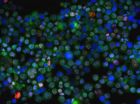(Press-News.org) SAN DIEGO, April 4, 2014 – The second-most common type of breast cancer is a very different disease than the most common and appears to be a good candidate for a personalized approach to treatment, according to a multidisciplinary team led by scientists at the University of Pittsburgh Cancer Institute (UPCI), a partner with UPMC CancerCenter.
Invasive lobular carcinoma, characterized by a unique growth pattern in breast tissue that fails to form a lump, has distinct genetic markers which indicate drug therapies may provide benefits beyond those typically prescribed for the more common invasive ductal carcinoma. The results recently were published in Cancer Research and will be expanded upon on Tuesday at the American Association for Cancer Research (AACR) Annual Meeting 2014.
Patients with invasive lobular carcinoma typically are treated through surgical removal of the cancer, followed by chemotherapy or hormone therapy or both, usually with the estrogen-mimicking drug tamoxifen or estrogen-lowering aromatase inhibitors, the same as patients with invasive ductal carcinoma.
"However, recent analyses suggest that a subset of patients with lobular carcinoma receive less benefit from adjuvant tamoxifen than patients with ductal carcinoma," said lead author Matthew Sikora, Ph.D., postdoctoral associate at UPCI, and recipient of this year's AACR-Susan G. Komen Scholar-in-Training Award for this research. "Our study, the largest of its kind, indicates an issue with the estrogen receptors inside lobular carcinoma cells and points to potential targets for drug therapy in future clinical trials, which we are developing."
Early studies in developing these potential targets are the topic of Dr. Sikora's AACR presentation, with a focus on a unique signaling pathway regulated by estrogen specifically in lobular carcinoma cells.
INFORMATION:
Additional researchers on this study include Steffi Oesterreich, Ph.D., and Amir Bahreini, B.S., both of UPCI.
This research was supported by the Breast Cancer Research Foundation, Department of Defense Breast Cancer Research Program and Pennsylvania Department of Health.
About UPCI
As the only NCI-designated comprehensive cancer center in western Pennsylvania, UPCI is a recognized leader in providing innovative cancer prevention, detection, diagnosis, and treatment; biomedical research; compassionate patient care and support; and community-based outreach services. Investigators at UPCI, a partner with UPMC CancerCenter, are world-renowned for their work in clinical and basic cancer research.
http://www.upmc.com/media
Contact: Allison Hydzik
Phone: 412-647-9975
Mobile: 412-559-2431
E-mail: HydzikAM@upmc.edu
Contact: Jennifer Yates
Phone: 412-647-9966
E-mail: YatesJC@upmc.edu END
Common breast cancer subtype may benefit from personalized treatment approach
2014-04-04
ELSE PRESS RELEASES FROM THIS DATE:
Plant-derived anti-cancer compounds explained at national conference
2014-04-04
SAN DIEGO, April 4, 2014 – Compounds derived from plant-based sources — including garlic, broccoli and medicine plants — confer protective effects against breast cancer, explain researchers at the University of Pittsburgh Cancer Institute (UPCI), partner with the UPMC CancerCenter.
In multiple presentations Sunday at the American Association for Cancer Research (AACR) Annual Meeting 2014, UPCI scientists will update the cancer research community on their National Cancer Institute (NCI)-funded findings, including new discoveries about the mechanisms by which the plant-derived ...
Genetic testing beneficial in melanoma treatment
2014-04-04
SAN DIEGO, April 4, 2014 – Genetic screening of cancer can help doctors customize treatments so that patients with melanoma have the best chance of beating it, according to the results of a clinical trial by researchers at the University of Pittsburgh Cancer Institute (UPCI), a partner with UPMC CancerCenter.
The trial, funded by the National Institutes of Health (NIH), will be presented Monday at the American Association for Cancer Research (AACR) Annual Meeting 2014. It showed that the cancer immune therapy drug ipilimumab appears most likely to prevent recurrence ...
Combining cell replication blocker with common cancer drug kills resistant tumor cells
2014-04-04
SAN DIEGO, April 4, 2014 – Researchers from the University of Pittsburgh Cancer Institute (UPCI), a partner with UPMC CancerCenter, have found that an agent that inhibits mitochondrial division can overcome tumor cell resistance to a commonly used cancer drug, and that the combination of the two induces rapid and synergistic cell death. Separately, neither had an effect. These findings will be presented Monday at the annual meeting of the American Association for Cancer Research Annual Meeting 2014.
"In our earlier work, we found that blocking production of a protein called ...
International consortium discovers 2 genes that modulate risk of breast and ovarian cancer
2014-04-04
Today we know that women carrying BCRA1 and BCRA2 gene mutations have a 43% to 88% risk of developing from breast cancer before the age of 70. Taking critical decisions such as opting for preventive surgery when the risk bracket is so wide is not easy. Spanish National Cancer Research Centre (CNIO) researchers are conducting a study that will contribute towards giving every woman far more precise data about her personal risk of suffering from cancer.
The paper has been authored by 200 researchers from 55 research groups from around the world and describes two new genes ...
Screening reveals additional link between endometriosis and ovarian cancer
2014-04-04
SAN DIEGO, April 4, 2014 – Some women with endometriosis, a chronic inflammatory disease, are predisposed to ovarian cancer, and a genetic screening might someday help reveal which women are most at risk, according to a University of Pittsburgh Cancer Institute (UPCI) study, in partnership with Magee-Womens Research Institute (MWRI).
Monday at the American Association for Cancer Research (AACR) Annual Meeting 2014, UPCI and MWRI researchers will present the preliminary results of the first comprehensive immune gene profile exploring endometriosis and cancer.
"A small ...
Grandparents may worsen some moms' baby blues
2014-04-04
Does living with grandparents ease or worsen a mothers' baby blues? The answer may depend on the mother's marital status, a new study from Duke University suggests.
Married and single mothers suffer higher rates of depression when they live in multi-generational households in their baby's first year of life, the study found. But for moms who live with their romantic partners but aren't married, having one or more grandparents in the house is linked to lower rates of depression.
The pattern held true for rich, poor and middle class women. The findings varied by race, ...
Toward a clearer diagnosis of chronic fatigue syndrome
2014-04-04
Researchers at the RIKEN Center for Life Science Technologies, in collaboration with Osaka City University and Kansai University of Welfare Sciences, have used functional PET imaging to show that levels of neuroinflammation, or inflammation of the nervous system, are higher in patients with chronic fatigue syndrome than in healthy people.
Chronic fatigue syndrome, which is also known as myalgic encephalomyelitis, is a debilitating condition characterized by chronic, profound, and disabling fatigue. Unfortunately, the causes are not well understood.
Neuroinflammation ...
New study on the crime risk on London Underground
2014-04-04
A UNIVERSITY of Huddersfield criminologist who has been working closely with authorities in London to cut crime on one of the world's busiest transport systems will appear before a House of Commons select committee to describe his findings. Dr Andrew Newton is also forming links with overseas experts so that their research can make public transport systems around the world safer places to travel.
By analysing crime patterns on the London Underground, which carries more than one billion passengers a year, Dr Newton is able to draw conclusions about the environment of ...
New algorithm aids in both robot navigation and scene understanding
2014-04-04
Suppose you're trying to navigate an unfamiliar section of a big city, and you're using a particular cluster of skyscrapers as a reference point. Traffic and one-way streets force you to take some odd turns, and for a while you lose sight of your landmarks. When they reappear, in order to use them for navigation, you have to be able to identify them as the same buildings you were tracking before — as well as your orientation relative to them.
That type of re-identification is second nature for humans, but it's difficult for computers. At the IEEE Conference on Computer ...
Scientists unmask the climate uncertainty monster
2014-04-04
Scientific uncertainty has been described as a 'monster' that prevents understanding and delays mitigative action in response to climate change. New research by Professor Stephan Lewandowsky of the University of Bristol, and international colleagues, shows that uncertainty should make us more rather than less concerned about climate change.
In two companion papers, published today in Climatic Change, the researchers investigated the mathematics of uncertainty in the climate system and showed that increased scientific uncertainty necessitates even greater action to mitigate ...


